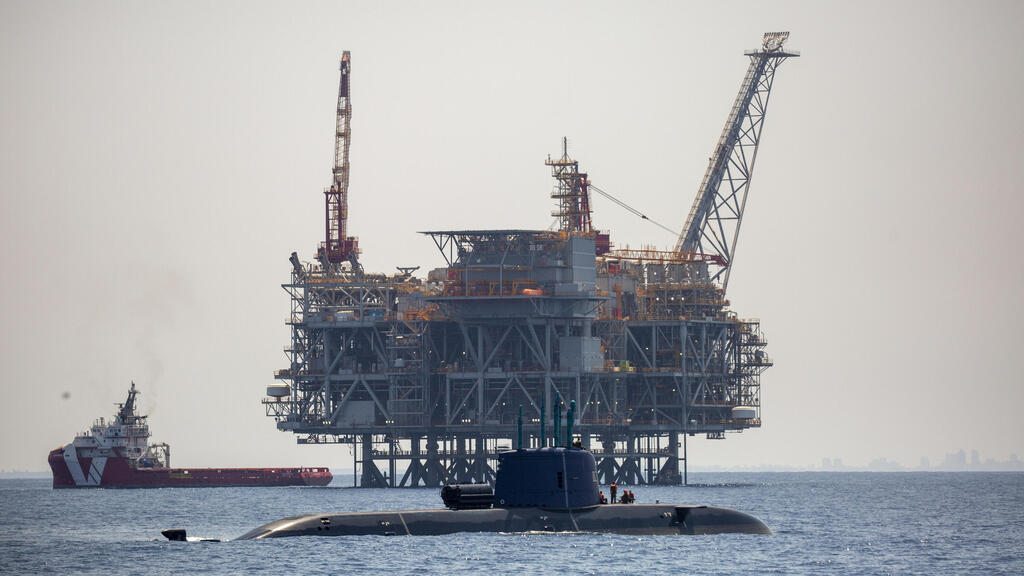Getting your Trinity Audio player ready...
Houthi rebels in Yemen are planning to retaliate against Israel for its attack on the port of Hodeidah, the Hezbollah-affiliated newspaper Al-Akhbar revealed in a recent report. The Houthis, according to "sources," are gearing up to target Israel's gas rigs and other energy facilities.
Israeli attack on Yemeni port
The report suggests these forthcoming operations will not be conducted by the Houthis alone but will involve coordinated efforts with various resistance movements. In recent weeks, the Houthis have claimed to be collaborating with pro-Iranian militias in Iraq, launching joint attacks on Israel. Notably, on the day a drone explosion killed Yevgeny Perder in Tel Aviv, another drone launched from the east was intercepted.
Al-Akhbar reported that under the "fifth phase" of escalation declared by the Houthi leader, there will be "surprise operations" in previously untouched areas and an "increase in attacks on Israeli ships and those connected to Israel." Moreover, the report stated that the Houthis intend to deploy "new, advanced, high-quality, long-range weapons that cannot be intercepted." Targets reportedly include the Leviathan and Tamar gas rigs, as well as "another field in the Dead Sea, power stations and Israeli oil tanks." There is also a potential threat to oil supplies reaching Israel through the Mediterranean Sea from Azerbaijan and Kazakhstan.
The Houthis have frequently boasted about their actions against Israel, though according to the IDF, out of approximately 220 launches, the Tel Aviv attack was the only successful one. Conversely, the American-British coalition has struggled to curb Houthi attacks in the Red Sea, where the Houthis have significantly disrupted free trade and ship passage, causing substantial losses to the port of Eilat.
Despite reports of severe damage to the port and ongoing firefighting efforts, the Yemeni news agency Saba quoted the authority responsible for Yemen's ports as saying that the port of Hodeidah is "operating at full capacity." Nasser Al-Nassiri, a port official, said they are "working around the clock to receive all ships, with no concerns regarding the supply chain of food, medicine or oil products." Hodeidah's governor, Mohammed Ayyash Qahim, appointed by the Houthis, announced on social media platform X that "work at the port resumed at a high pace within 24 hours of the Israeli attack."
The UN Security Council convened Monday night to discuss the situation in Yemen, following the drone strike in Tel Aviv. Israel's Deputy Ambassador to the UN, Jonathan Miller, said that "Iran is the head of the snake. Israel stands against a regime that threatens the entire world, and anyone seeking a secure Middle East should support Israel's actions against this axis of terror."
He emphasized that "Israel has no beef with Yemen or its residents. The Houthis act on behalf of and in the name of radical Iranian ideology. The port of Hodeidah is not innocent; it is used for terrorist purposes and is thus a legitimate military target. It receives weapon shipments directly from Iran."
The U.S. representative, Ambassador Robert Wood, highlighted intelligence indicating the drone was manufactured in Iran. "We condemn the Houthi attack. These actions underscore their threat, and these are not isolated incidents. The Houthis have fired 200 missiles at Israel – if that’s not the definition of an international threat, I don’t know what is," he said.
Wood criticized certain council members for adopting a false narrative that the Houthis are merely showing solidarity with Gaza. "The reality is the Houthis are terrorists desperate to divert attention from their catastrophic failure in Yemen. The only way to counter them is to counter Iran. The United States supports Israel's right to self-defense and rejects any council effort to prevent that. This fact cannot be ignored; Iran's violations of council resolutions must be addressed," he said.






